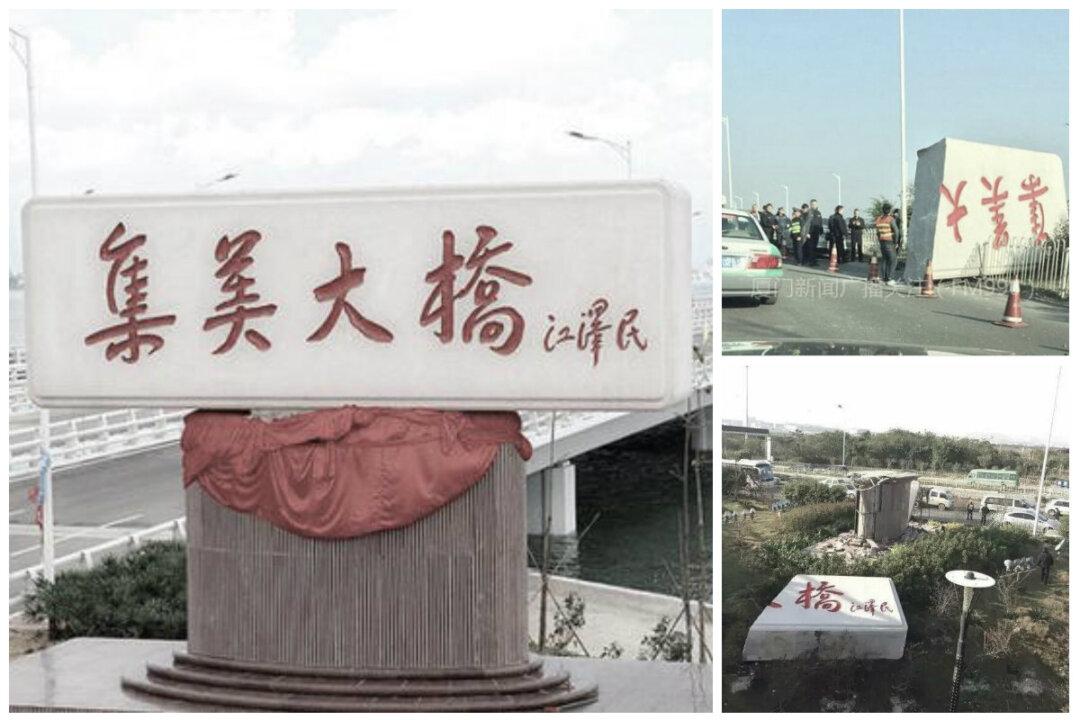During the morning rush on a bridge in a major port city in southern China recently, a large commemorative stone inscription at the head of the bridge split cleanly down the middle, half of it falling onto the road. But it wasn’t just any stone.
The white granite slab bore the calligraphy and signature of former Chinese Communist Party leader Jiang Zemin, and was erected in a 2008 ceremony to open the 2.95 billion yuan (about $450 million) bridge, which connects the district of Jimei and the island of Xiamen in Fujian Province.
“Jimei Bridge,” it said, followed by Jiang’s name on the bottom right.
According to several reports in mainland Chinese news outlets, cleanup workers say that the stone slab, which was nearly twice as high as a person, snapped at between 3 to 4 a.m. in the morning of Feb. 29. No one was injured, but the one half had crushed a metal railing and blocked half a lane.
One cleanup worker told Southeast Express Daily, the newspaper of the Fujian provincial government, that the granite stone inscription could already possess defects, and probably split on its own accord after extended exposure to the elements.
But the stone had split on a clear, calm morning—the Xiamen meteorological station said wind speeds only reached a maximum of 1.9 m/s or 0.85 mph on Feb. 29—causing Chinese netizens to speculate on just what caused it.




